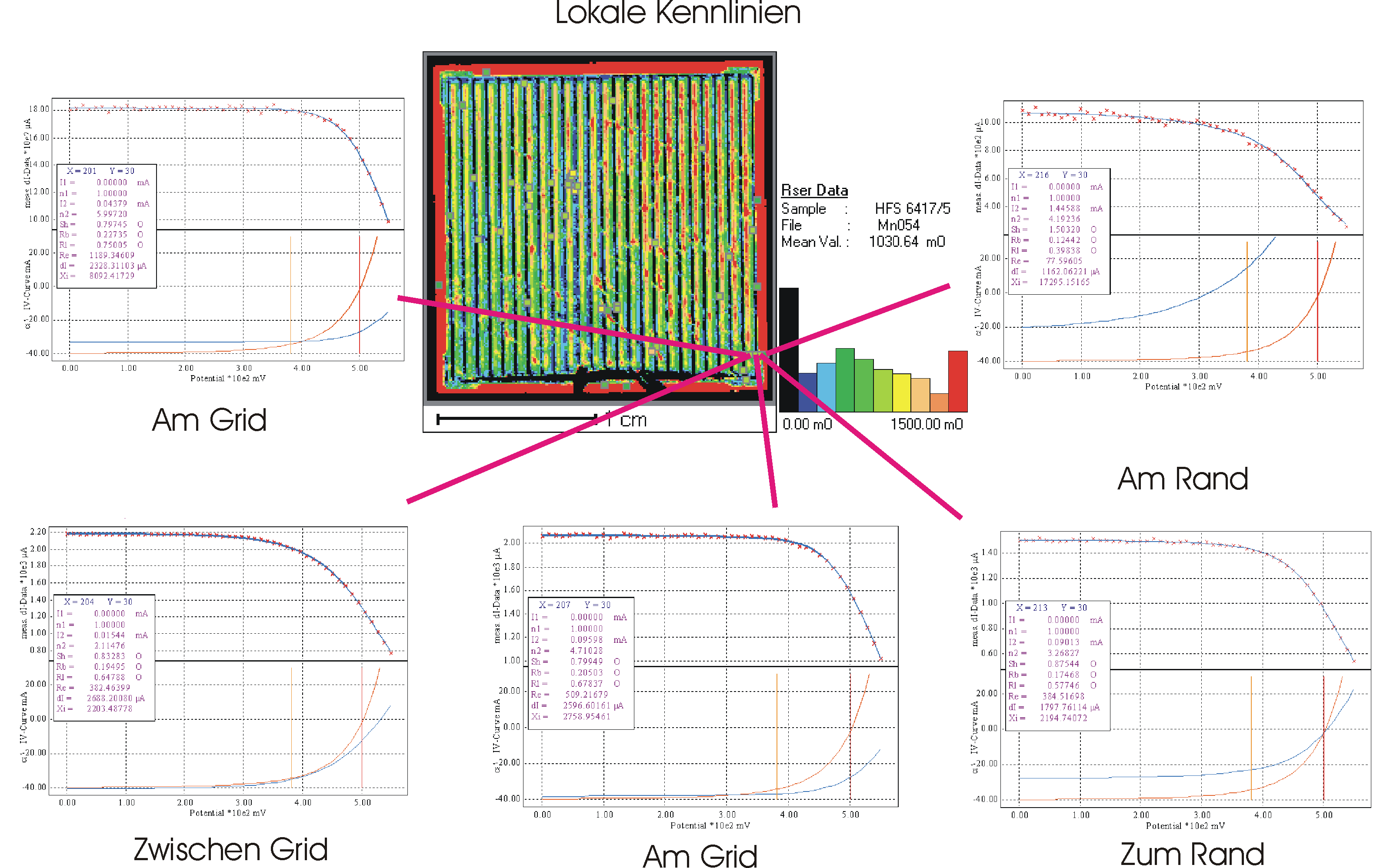| The CELLO technique uses a modulated light beam with low intensity that is scanned across a solar cell which is illuminated with flood light and held at constant voltage or a constant current at a specified point of its global I-V-characteristics. | ||
| The small signal response to the modulated light beam under various bias or illumination conditions is measured and fitted to a model of the solar cell that includes local variations of all relevant parameters and - and this is new - a lateral coupling between these parameters. | ||
| A nearly perfect fit will only be obtained with a model that is more complicated, but also more realistic, than standard models of solar cells. Of prime importance, e.g., are local gradients in the minority carrier life time which are usually neglected. | ||
| From 4 - 5 measurements for every pixel ("fast scan") on the solar cell and a suitable fitting routine maps of e.g. the local series- or shunt resistance can be obtained in addition to the well-known short-circuit current map. | ||
| Complete I-V-characteristics of a selected pixel are obtainable by taking a whole set of small signal responses along the I-V-characteristics of the global solar cell and by fitting this expanded data set to the model ("slow scan"). | ||
| The picture below shows a map of the series resistance of a solar cell obtained by the fast scan and a set of three curves (obtained by a local slow scan) per pixel area which were taken from five adjacent areas on a line between two grid fingers as indicated by the purple bars. | ||
| The upper curve shows the fit to the red datapoints based on the model. | ||
| The lower curves show the I-U-characteristics of the global cell (orange line) as a reference and the calculated local characteristics at the indicated points (blue line). | ||
| It is obvious that the local characteristics vary to a considerable degree and that there is room for improvement of this cell. | ||
| If you do not get a clear picture on your screen, you may consider to download the picture and view it at higher magnification with a suitable software. | ||
| First Publications concerning CELLO | ||
| For more information contact Dr. Carstensen via e-mail | ||
